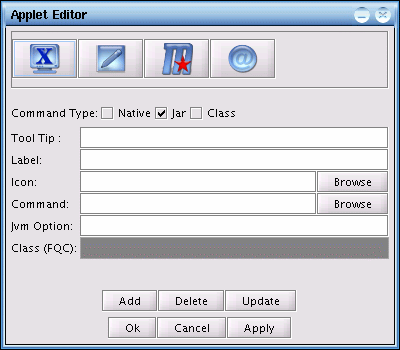URL
In computing, a Uniform Resource Locator (URL) is a Uniform Resource Identifier (URI) that specifies where an identified resource is available and the mechanism for retrieving it. The best-known example of the use of URLs is for the addresses of web pages on the World Wide Web, such as http://www.example.com/
HTML
HTML, which stands for HyperText Markup Language, is the predominant markup language for web pages. HTML is the basic building-blocks of webpages. The purpose of a web browser is to read HTML documents and compose them into visual or audible web pages. The browser does not display the HTML tags, but uses the tags to interpret the content of the page.
JAVASCRIPT
JavaScript, also known as ECMAScript, is a prototype-based, object-oriented scripting language that is dynamic, weakly typed and has first-class functions. It is also considered a functional programming language like Scheme and OCaml because it has closures and supports higher-order functions.
JavaScript is an implementation of the ECMAScript language standard and is primarily used in the form of client-side JavaScript, implemented as part of a web browser in order to provide enhanced user interfaces and dynamic websites. This enables programmatic access to computational objects within a host environment.

APPLETS
In computing, an applet is any small application that performs one specific task that runs within the scope of a larger program, often as a plug-in. An applet typically also refers to Java applets, i.e., programs written in the Java programming language that are included in a web page. The word Applet was first used in 1993 by the application AppleScript.

BLOGS
A blog (a blend of the term web log) is a type of website or part of a website. Blogs are usually maintained by an individual with regular entries of commentary, descriptions of events, or other material such as graphics or video. Entries are commonly displayed in reverse-chronological order. Blog can also be used as a verb, meaning to maintain or add content to a blog.

WIKIS
A wiki is a website that allows the creation and editing of any number of interlinked web pages via a web browser using a simplified markup language or a WYSIWYG text editor. Wikis are typically powered by wiki software and are often used to create collaborative works. Examples include community websites, corporate intranets, knowledge management systems, and note services. The software can also be used for personal notetaking.

FTP
File Transfer Protocol (FTP) is a standard network protocol used to copy a file from one host to another over a TCP-based network, such as the Internet. FTP is built on a client-server architecture and utilizes separate control and data connections between the client and server. FTP users may authenticate themselves using a clear-text sign-in protocol but can connect anonymously if the server is configured to allow it.
PLUG-IN
In computing, a plug-in (or plugin) is a set of software components that adds specific abilities to a larger software application. If supported, plug-ins enable customizing the functionality of an application. For example, plug-ins are commonly used in web browsers to play video, scan for viruses, and display new file types. Well-known plug-ins examples include Adobe Flash Player and QuickTime.
FILTERS
A filter is a computer program to process a data stream. Some operating systems such as Unix are rich with filter programs. Even Windows has some simple filters built into its command shell, most of which have significant enhancements relative to the similar filter commands that were available in MS-DOS.
INTERNET SECURITY SUITE
A suite of utilities for maintaining the security of a Windows PC. It includes more than a dozen utilities such as antivirus, personal firewall, spam blocker and popup blocker.
| |






0 comments:
Post a Comment